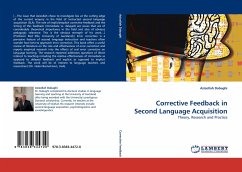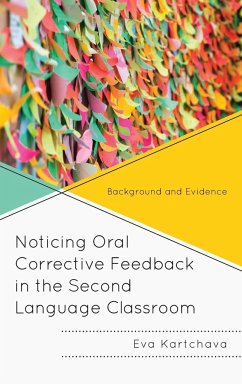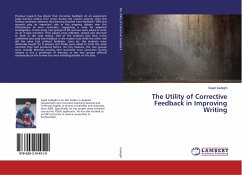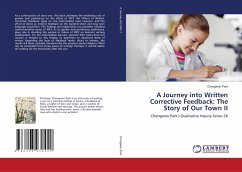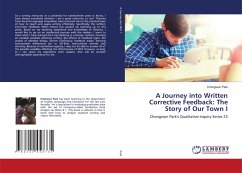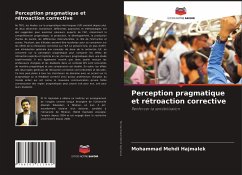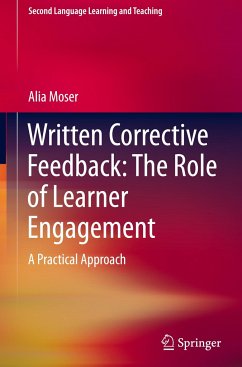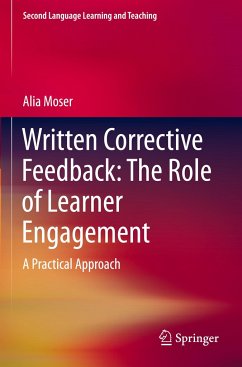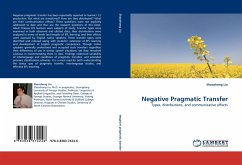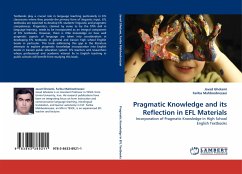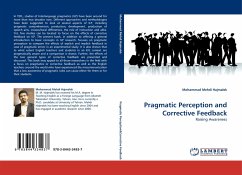
Pragmatic Perception and Corrective Feedback
Raising Awareness
Versandkostenfrei!
Versandfertig in 6-10 Tagen
39,99 €
inkl. MwSt.

PAYBACK Punkte
20 °P sammeln!
In TEFL, studies of Interlanguage pragmatics (ILP) have been around for more than two decades now. Different approaches and methodologies have been suggested to look at several aspects of ILP, including pragmatic comprehension, production, development, production of speech acts, crosscultural differences, the role of instruction and alike. Yet, few studies can be located to focus on the effects of corrective feedback on ILP. The present book, in addition to offering a general introduction to basic concepts in ILP research, focuses on pragmatic perception to compare the effects of explicit and ...
In TEFL, studies of Interlanguage pragmatics (ILP) have been around for more than two decades now. Different approaches and methodologies have been suggested to look at several aspects of ILP, including pragmatic comprehension, production, development, production of speech acts, crosscultural differences, the role of instruction and alike. Yet, few studies can be located to focus on the effects of corrective feedback on ILP. The present book, in addition to offering a general introduction to basic concepts in ILP research, focuses on pragmatic perception to compare the effects of explicit and implicit feedback in case of pragmatic errors in an experimental study. It is also shown that to what extent English teachers and students in an EFL context are pragmatically aware and a comparison is drawn. Further, the effects of the two general types of corrective feedback are presented and discussed. This book may appeal to all those researchers in the field with a focus on pragmatics orcorrective feedback as well as the English teachers around the world who have experienced the miscommunication that a low awareness of pragmatic rules can cause either for them or for their students.



